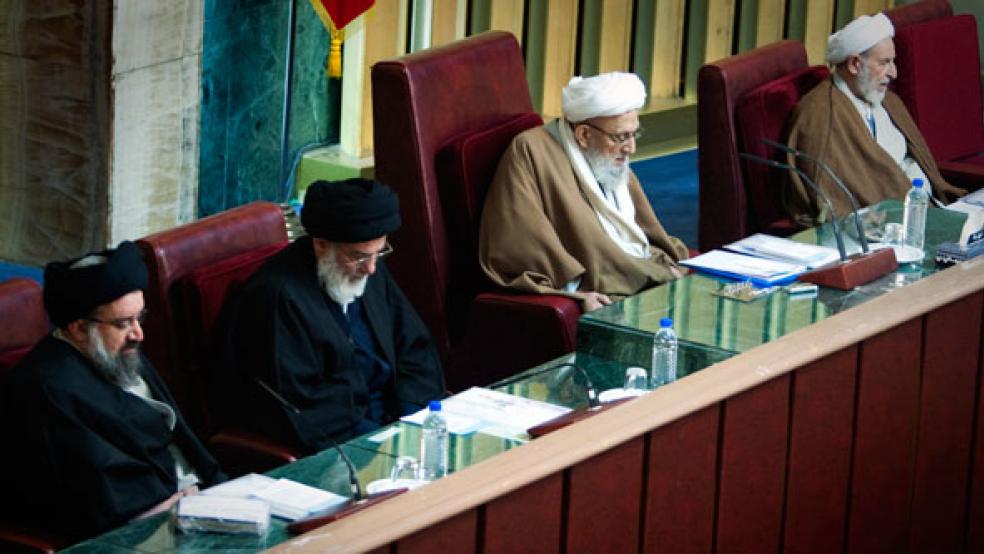The good news: We now have a new set of talks on Iran’s nuclear program scheduled for mid April in Istanbul. The bad news: Washington and its allies have not prepared the ground for these talks. We are a negotiating table away from $5-a-gallon gasoline and a failed economic recovery.
You would think that the U.S. and Europe would learn from recent events. After President Obama announced a new and very tough set of sanctions against Iran in December, gasoline prices crept up above $4 a gallon and haven’t budged since. The rise was due primarily to speculation among traders as to a shortage of crude if Washington’s sanctions go into effect and if Tehran, as it has threatened, blockades the Strait of Hormuz.
A few questions hang over these negotiations now. One is whether keeping sanctions in the background will help or hinder the talks. I think they will do no good and could quite easily alienate Iranian officials and render any deal resulting from the talks dead on arrival.
Another is whether the U.S. and its allies can replace Iranian crude that comes off the world market. Washington is trying to get France and other European nations to open up strategic reserves to offset any dip in supply.
Last Thursday, Saudi Arabia’s oil minister, Ali Naimi, made it bluntly clear that the kingdom would modulate production according to what the markets need. “There is no lack of supply,” Naimi wrote in the Financial Times. “There is no demand which cannot be met. We want to correct the myth that there is, or could be, a shortage. It is an irrational fear, a fear without basis.”
This is called talking down the market. Iran had been exporting 2.2 million barrels daily until February. But it is already believed to have dropped exports by 14 percent, to 1.9 million barrels daily, in March. It is possible that drawdowns of strategic reserves and supply increases among America’s friends in the Middle East can compensate for this.
At the end of last week, Obama assured us that there was sufficient supply in the world market to apply a full-court press against Tehran. But we’re leaving something out, and one suspects the president is, too: Such measures could make up for Iran’s falling production temporarily, not indefinitely.
Next question: What if sanctions are applied rigorously, which is Plan A, after all? If anyone thinks you can take Iran’s full production out of the global supply structure without impact, and especially at a moment of rising fuel prices and economic fragility in Europe and America, well, I hear there’s a bridge for sale in Brooklyn. Going it without Iran, in short, is not a winning long-term solution to the problem of Iran’s nuclear program.
Why can’t American diplomats learn from their own experience in Korea last week? At the second annual Nuclear Security Summit attended by 58 nations, there were no terrific breakthroughs on the issue of North Korea’s nuclear program. But with not a sanction in sight, the North appears to be holding to a commitment it announced last month to freeze its nuclear program and to allow international inspectors access to its nuclear sites for the first time since 2007.
But now Washington is miffed that Pyongyang plans to launch a satellite-bearing missile, as countless other nations have routinely done, in mid–April to mark the centenary of the birth of Kim Il-sung, the country’s cultishly revered founder. Out come the threats of sanctions once again. Considering how isolated North Korea is already, it is hard to imagine just what Washington would put on a sanctions list.
President Obama is well-known for favoring diplomatic solutions in international conflicts, and this is a fine, 21st–century approach. But he also appears to be sanctions-happy, and this side of his diplomatic strategy is a mistake.
Notably in the cases of Iran and North Korea, after everything each nation has already been through by way of international ostracism, sanctions are surely a toss-off. The point is especially important in the Iranian case, because sanctions could cost Americans a lot of money at the gas pumps and, more broadly, the considerable TLC the recovery needs. This is to say nothing of Europe’s vulnerability. It is, to put it plainly, a bad risk.
It is true that Obama has been put in a tough bind on the Iran question. The government of Benjamin Netanyahu in Israel has been about as destructive as it could be by turning up the pressure for an air attack on Iranian nuclear sites. Nonetheless, Obama has a question that is fundamental to statecraft on his hands.
What do you do when a nation takes steps that are not to your liking but entirely within its rights by way of its sovereignty? This question will come up again and again in years to come. And negotiation will consistently prove more successful than breathing fire.






